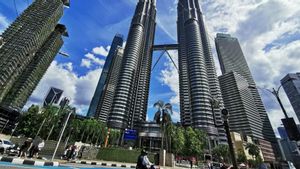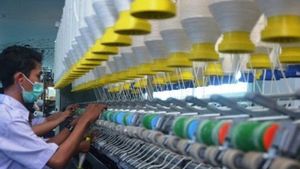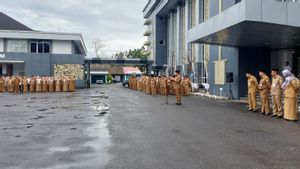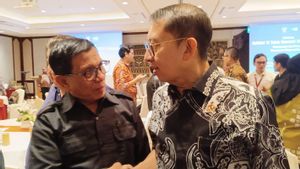JAKARTA - The alleged case of taking water without a permit as well as the alleged case of selling water to industry without a permit by PT DFT in Sumedang, has developed into a national issue. For this reason, the law enforcement agencies are asked to take this case seriously. If not, it is feared that it could undermine the authority of the law itself. This was conveyed by an environmental economist at the Muliawarman University, Bernaulus Saragih.
"The law must be processed, especially since the alleged case has been going on for eight years. If it is proven to have violated the law, it must be subject to sanctions according to the applicable laws. Including if it is proven to be detrimental to the state's finances. Otherwise, the authority of the law may collapse," said Bernaulus in his statement, Thursday, June 30. .
In addition to affecting legal authority, Bernaulus also warned of other negative impacts if this case is not resolved immediately. Among other things, that the company will certainly not have an Amdal.
"In fact, without an Amdal, of course, the impact will be tremendous on the environment, because as much water is dredged," said Bernaulus.
For this reason, continued Bernaulus, the extraction and use of water, both surface water such as springs and underground water, must have a permit. Especially if it is used for commercial purposes and selling to industry.
Because the permit will determine the capacity, how it is used, and how the waste is disposed of. If taken from a spring, it will affect the overall flow of water on the surrounding environmental conditions. For example, springs that have been forming the flow of river water, if used, will certainly affect the downstream part.
"In this case, the downstream part can be affected and will lose water. So there must be environmental and social aspects. So, basically there must be a permit," he continued.
The alleged case involving PT DFT has indeed become a national issue. Various parties have highlighted this case. Among them are DPR RI member TB Hasanuddin, Deputy Speaker of the MPR Hidayat Nur Wahid, WALHI West Java, Trisakti University public policy expert Trubus Rahadiansyah, and Trisakti University law expert Yenti Garnasih.
In fact, a West Java figure who is also a former member of Commission III of the DPR, Deding Ishak Ibnu Sudja, also urged that the alleged case be immediately processed by law. Moreover, the case is also suspected to have the potential to harm state finances.
TB Hasanudin, for example, previously also asked the government and law enforcement officials to act decisively by processing criminal law for companies that have been taking springs for commercial purposes to the detriment of society and the state in the Cimanggung sub-district in Sumedang district, and Cikancung sub-district in Bandung district. , West Java.
TB Hasanuddin explained, according to Law Number 17 of 2019 concerning Water Resources, that water must be used for the state, for the people, lest anyone be harmed due to illegal activities.
Article 49 paragraph (2) of the Law, for example, states that the use of water resources for business needs must have a permit. And if you do not have a permit but deliberately carry out activities such as Article 49 paragraph (2), then based on Article 70, you can be sentenced to a minimum of one year in prison and a maximum of three years. In addition, they are also subject to a minimum fine of Rp. 1 billion and a maximum of Rp. 5 billion.
The English, Chinese, Japanese, Arabic, and French versions are automatically generated by the AI. So there may still be inaccuracies in translating, please always see Indonesian as our main language. (system supported by DigitalSiber.id)













